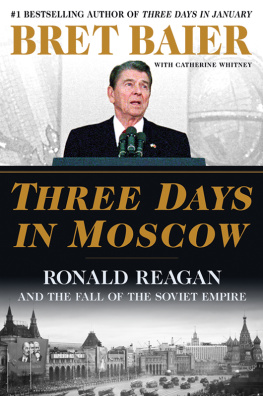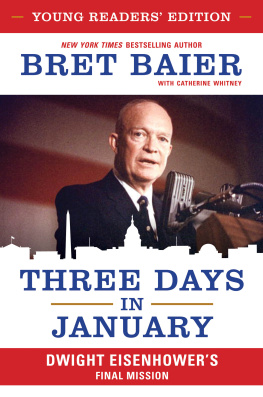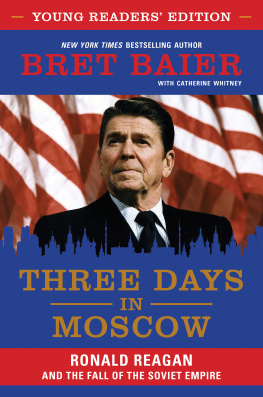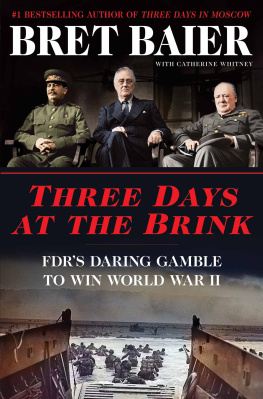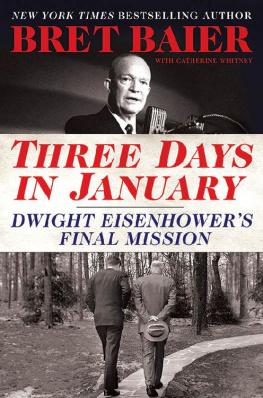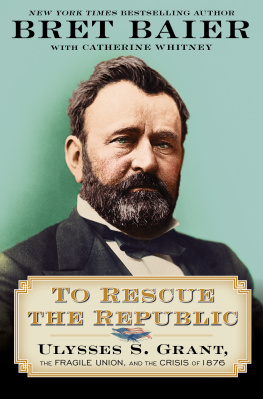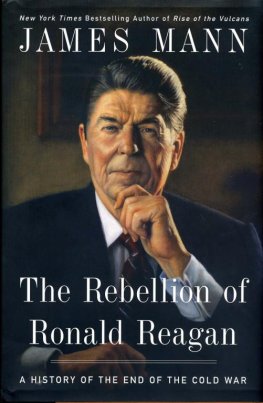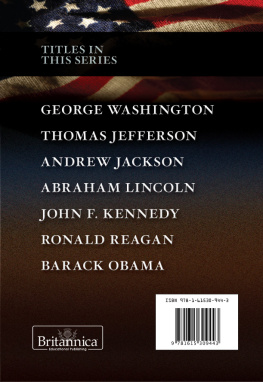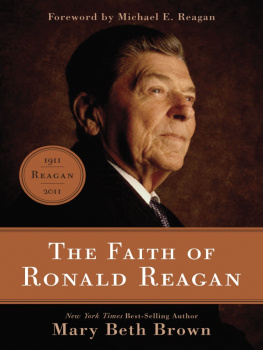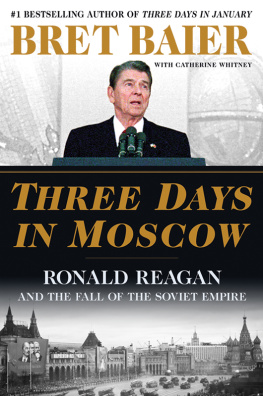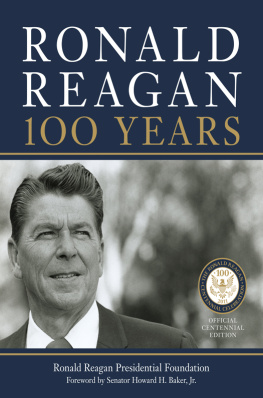Bret Baier - Three Days in Moscow: Ronald Reagan and the Fall of the Soviet Empire
Here you can read online Bret Baier - Three Days in Moscow: Ronald Reagan and the Fall of the Soviet Empire full text of the book (entire story) in english for free. Download pdf and epub, get meaning, cover and reviews about this ebook. year: 2018, publisher: William Morrow, genre: Politics. Description of the work, (preface) as well as reviews are available. Best literature library LitArk.com created for fans of good reading and offers a wide selection of genres:
Romance novel
Science fiction
Adventure
Detective
Science
History
Home and family
Prose
Art
Politics
Computer
Non-fiction
Religion
Business
Children
Humor
Choose a favorite category and find really read worthwhile books. Enjoy immersion in the world of imagination, feel the emotions of the characters or learn something new for yourself, make an fascinating discovery.
- Book:Three Days in Moscow: Ronald Reagan and the Fall of the Soviet Empire
- Author:
- Publisher:William Morrow
- Genre:
- Year:2018
- Rating:4 / 5
- Favourites:Add to favourites
- Your mark:
Three Days in Moscow: Ronald Reagan and the Fall of the Soviet Empire: summary, description and annotation
We offer to read an annotation, description, summary or preface (depends on what the author of the book "Three Days in Moscow: Ronald Reagan and the Fall of the Soviet Empire" wrote himself). If you haven't found the necessary information about the book — write in the comments, we will try to find it.
President Reagans dramatic battle to win the Cold War is revealed as never before by the #1 bestselling author and award-winning anchor of the #1 rated Special Report with Bret Baier.
An instant classic, if not the finest book to date on Ronald Reagan. Jay Winik
Moscow, 1988: 1,000 miles behind the Iron Curtain, Ronald Reagan stood for freedom and confronted the Soviet empire.
In his acclaimed bestseller Three Days in January, Bret Baier illuminated the extraordinary leadership of President Dwight Eisenhower at the dawn of the Cold War. Now in his highly anticipated new history, Three Days in Moscow, Baier explores the dramatic endgame of Americas long struggle with the Soviet Union and President Ronald Reagans central role in shaping the world we live in today.
On May 31, 1988, Reagan stood on Russian soil and addressed a packed audience at Moscow State University, delivering a remarkableyet now largely forgottenspeech that capped his first visit to the Soviet capital. This fourth in a series of summits between Reagan and Soviet General Secretary Mikhail Gorbachev, was a dramatic coda to their tireless efforts to reduce the nuclear threat. More than that, Reagan viewed it as a grand historical moment: an opportunity to light a path for the Soviet peopletoward freedom, human rights, and a future he told them they could embrace if they chose. It was the first time an American president had given an address about human rights on Russian soil. Reagan had once called the Soviet Union an evil empire. Now, saying that depiction was from another time, he beckoned the Soviets to join him in a new vision of the future. The importance of Reagans Moscow speech was largely overlooked at the time, but the new world he spoke of was fast approaching; the following year, in November 1989, the Berlin Wall fell and the Soviet Union began to disintegrate, leaving the United States the sole superpower on the world stage.
Today, the end of the Cold War is perhaps the defining historical moment of the past half century, and must be understood if we are to make sense of Americas current place in the world, amid the re-emergence of US-Russian tensions during Vladimir Putins tenure. Using Reagans three days in Moscow to tell the larger story of the presidents critical and often misunderstood role in orchestrating a successful, peaceful ending to the Cold War, Baier illuminates the character of one of our nations most venerated leadersand reveals the unique qualities that allowed him to succeed in forming an alliance for peace with the Soviet Union, when his predecessors had fallen short.
Bret Baier: author's other books
Who wrote Three Days in Moscow: Ronald Reagan and the Fall of the Soviet Empire? Find out the surname, the name of the author of the book and a list of all author's works by series.

